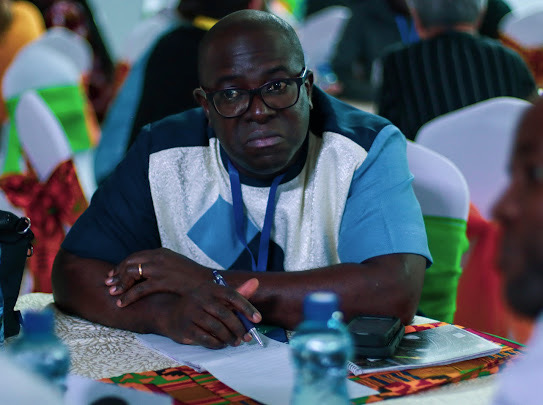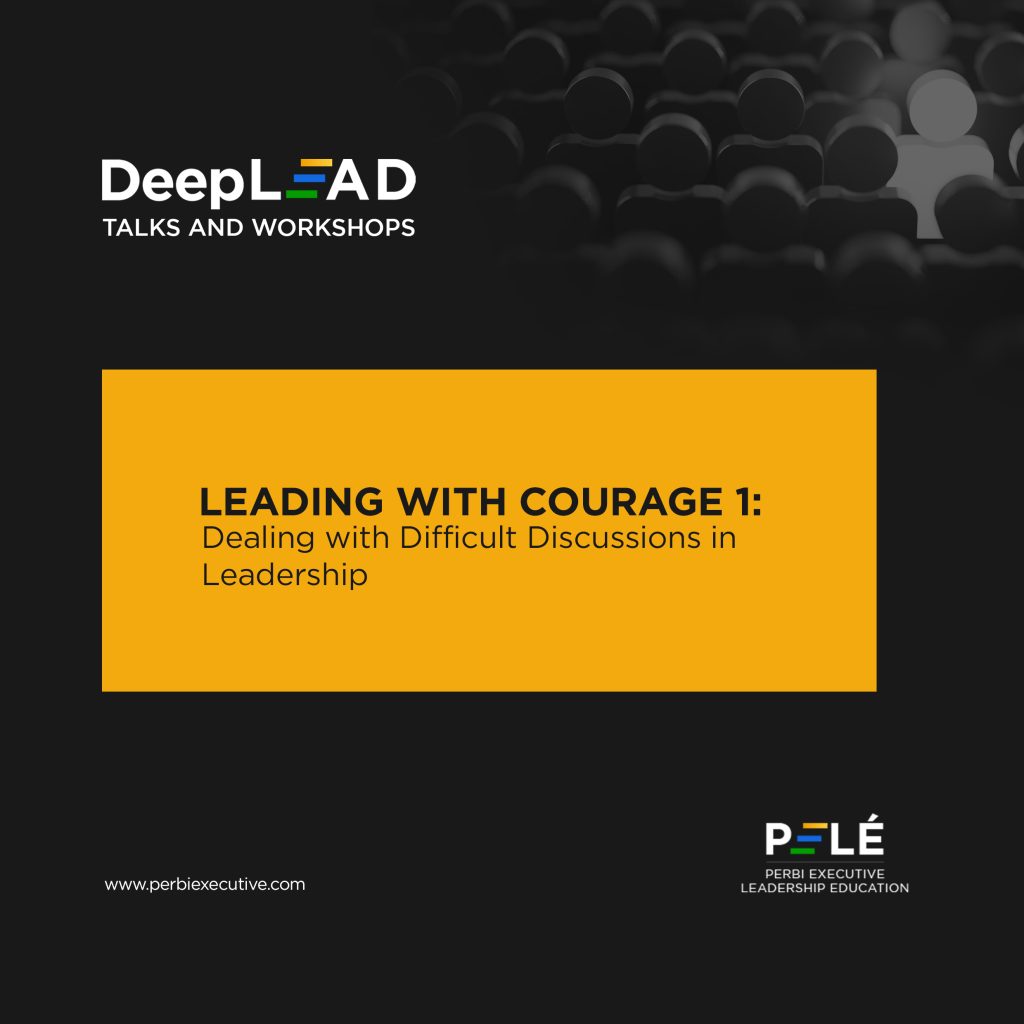All is set for a life-saving operation. On the surgical table lies a man whose continued living depends on the amputation of a diabetic foot that is giving the rest of his body hell. The renowned surgeon dashes in, marks a leg, drapes it quickly and begins to swab it, disinfecting the operating area for action. Then a sudden realization hits his scrub nurse like a thunderbolt. That is not the limb to be amputated. Would she have the courage to bring up this crucial conversation for a timely intervention? No. She remains silent. The wrong leg is amputated.
At the invitation of The Association of International Certification Schools (ASICS) in Ghana, PELÉ delivered a Masterclass on Leading with Courage: Navigating Difficult Discussions. This was at the Airport View Hotel in Accra. This is the second time engaging this body of leaders–founders, proprietors and C-level executives–of private schools that run either the Cambridge or International Baccalaureate programmes. At their Revive annual retreat in the Volta Region last year, the PELÉ team delivered a two-hour workshop on Leading with Self-Awareness, which included sharing an analysis of the DISC personality assessment of each of the ASICS council members and the potential areas of synergy as well as conflict as a team.
Scenarios
Dealing with difficult discussions could produce humorous scenarios like the banter between two of the richest people on the planet, Mike Zuckerberg and Elon Musk, that just might end up in an entertaining duel. It will be a sight for sore eyes should they actually, eventually, get into that much-talked about cage fight. However, not navigating difficult discussions well (or at all) could end up in sheer disastrous situations, like the surgeon (above) who amputated the wrong leg just because his scrub nurse couldn’t bring herself to raising that ‘crucial conversation’ when she noticed the wrong leg was being marked and swabbed for surgery. The anticipated pain we fear and so keep silent turns out better than the actual disaster that occurs because of our silence. Yes, often there is no pain per se beyond the little discomfort; but even when there is, it is better than we thought. Much better. How many organizations are disastrously amputating wrong legs because the right mouths won’t speak?
Difficult discussions or ‘crucial conversations’ may range from high-level, multilateral Israeli-Palestinian issues to simpler organizational ones like delayed projects and presiding over a poor performance review to as personal as employee body odour or bad breath.
Hard Questions about Hard Situations
Since “thinking begins when you ask really difficult questions” (Slavoj Zizek), let’s ask a few Lencioni ones (from The Motive):
1. Do you organize “team-building” activities for your team that are fun but that largely ignore uncomfortable conversations about their collective behaviours?
2. Would you rather learn to live with a person’s difficult behaviours than endure an awkward, potentially emotional discussion with them?
3. Do you find yourself venting about your direct reports’ or other stakeholders’ behavioural issues rather than talking with them directly?
4. Do you find yourself saying about potential uncomfortable conversations, “I don’t have time for that” or “I can’t waste my energy on this”?
If you answered ‘yes’ to any of the above four questions, you are a candidate for the Dealing with Difficult Discussions workshop.
One of Five Things C-level leaders Suck at
In his no holds barred book, The Motive, Patrick Lencioni observes that reward-centered leaders find the following five responsibilities tedious, uncomfortable, plain hard: 1. Developing the Leadership Team, 2. Managing Subordinates (and making them manage theirs), 3. Having Difficult and Uncomfortable Conversations 4. Running Great Meetings 5. Communicating Constantly and Repetitively to Employees. Smack in the middle of the junk pile is abdicating dealing with difficult discussions.
So, while these ASICS leaders are already prone to shirking their responsibility to navigate uncomfortable and difficult conversations just by virtue of being C-level leaders too, the ones who are African have the odds stacked against them even more as “high-context nations prefer the avoiding and obliging conflict styles more than low-context nations” (Croucher et al, 2012).
What to do
So what leaders need is a mindset shift as well as a new skillset. The saving paradigm is this: “Effective team-building always involves emotional and uncomfortable conversations” (Lencioni). Every leader worth their salt knows ‘it comes with the territory’ and the response-able thing to do is to deal with it response-ably. There is no true success in life or leadership without having to deal with difficult discussions. Navigating difficult discussions has more to do with YOU than the issue(s) or the other person(s) involved: one’s motives (for leadership), personality style (assessable via the DISC) and values. This is why whenever we can, we would rather run the Leading with Self-Awareness masterclass or workshop first, since these are only three of eighteen factors we bring to the fore that leaders must be self-aware of.
Ín terms of skills, the new skillset involves a couple of tools. One of the tools to practice is known as Climbing the Ladder of Integrity. In our 150-minute workshops, we invest at least half-an-hour of practicing this skill and getting feedback. Not so much for confronting someone per se, but for first getting clear within yourself.
Concluding with Courage
Leading with courage, really, is leading with heart (don’t forget ‘heart’ is cœur). With this courage, which is not the absence of fear but the taking of action forward in spite of it. In the words of former U.S. president Franklin D. Roosevelt, “Courage is not the absence of fear, but rather the assessment that something else is more important than fear. Progress.” Remember the anticipated pain we fear and so keep silent? Even the Madiba, Nelson Mandela, confesses: “I learned that courage was not the absence of fear, but the triumph over it. The brave man is not he who does not feel afraid, but he who conquers that fear.” May we too, like him, learn this and lead with heart–courage, character, compassion, competence–navigating ‘crucial conversations’ and difficult discussions.
PELÉ’s vision is a global ecosystem of authentic leaders characterized by healthy growth, holistic success and lasting significance. Consequently, we are on a mission to offer authentic and customized relationships and resources to C-level executives to grow personally–including dealing with difficult discussions–to succeed professionally, and become significant societally.
REFERENCES
Patrick Lencioni (2020): The Motive: Why So Many Leaders Abdicate Their Most Important Responsibilities. The Table Group.
Stephen M. Croucher, Ann Bruno, Paul McGrath, Caroline Adams, Cassandra McGahan, Angela Suits & Ashleigh Huckins (2012): ‘Conflict Styles and High–Low Context Cultures: A Cross-Cultural Extension,’ Communication Research Reports, 29:1, 64-73. Link to this article: http://dx.doi.org/10.1080/08824096.2011.640093











